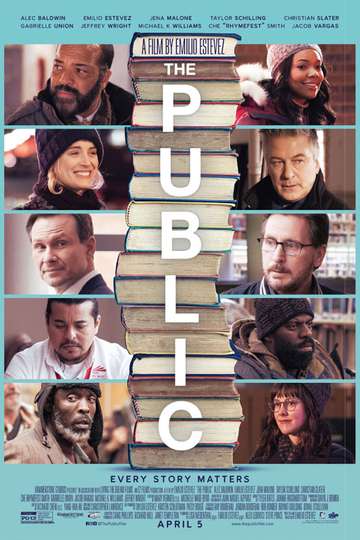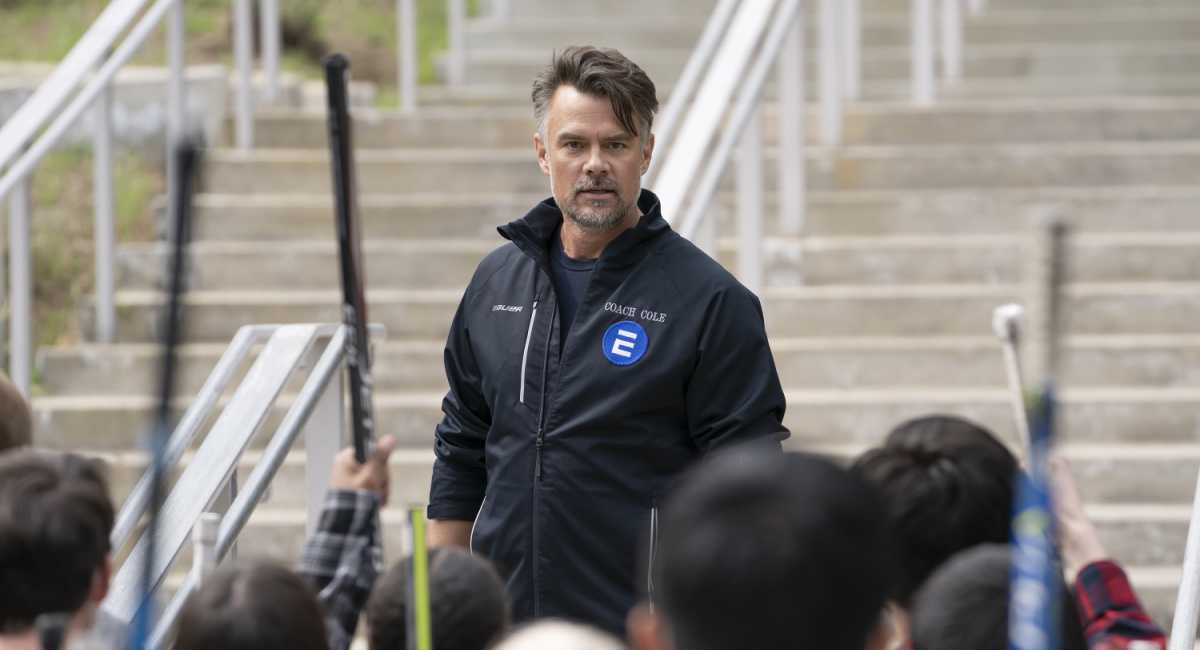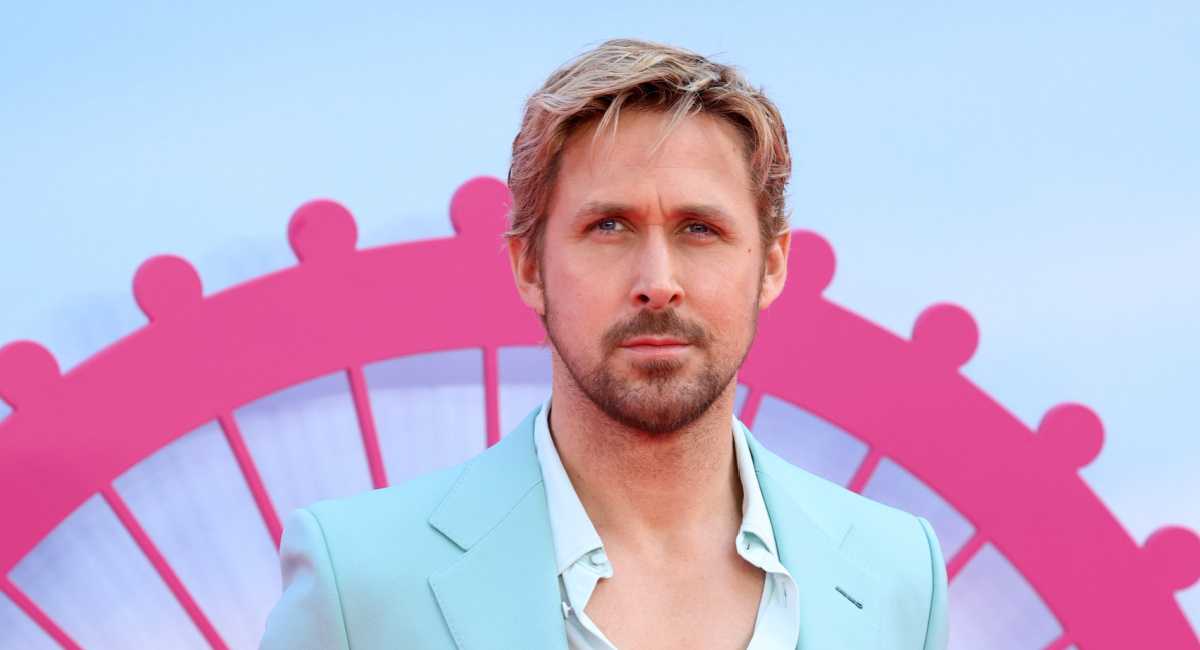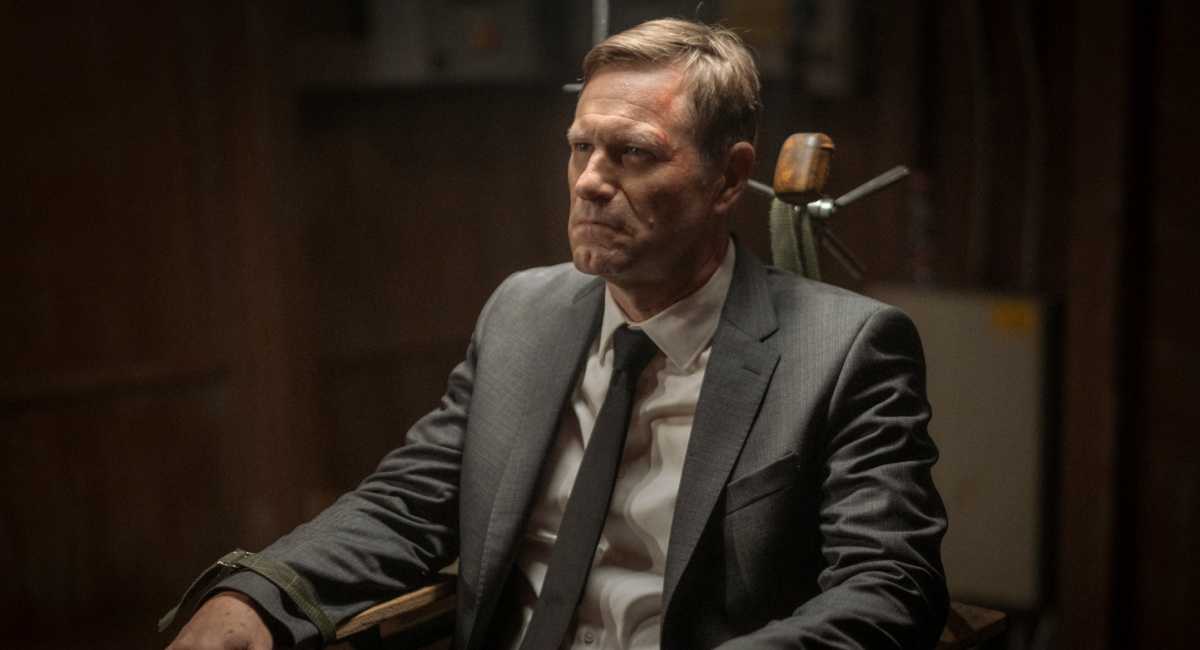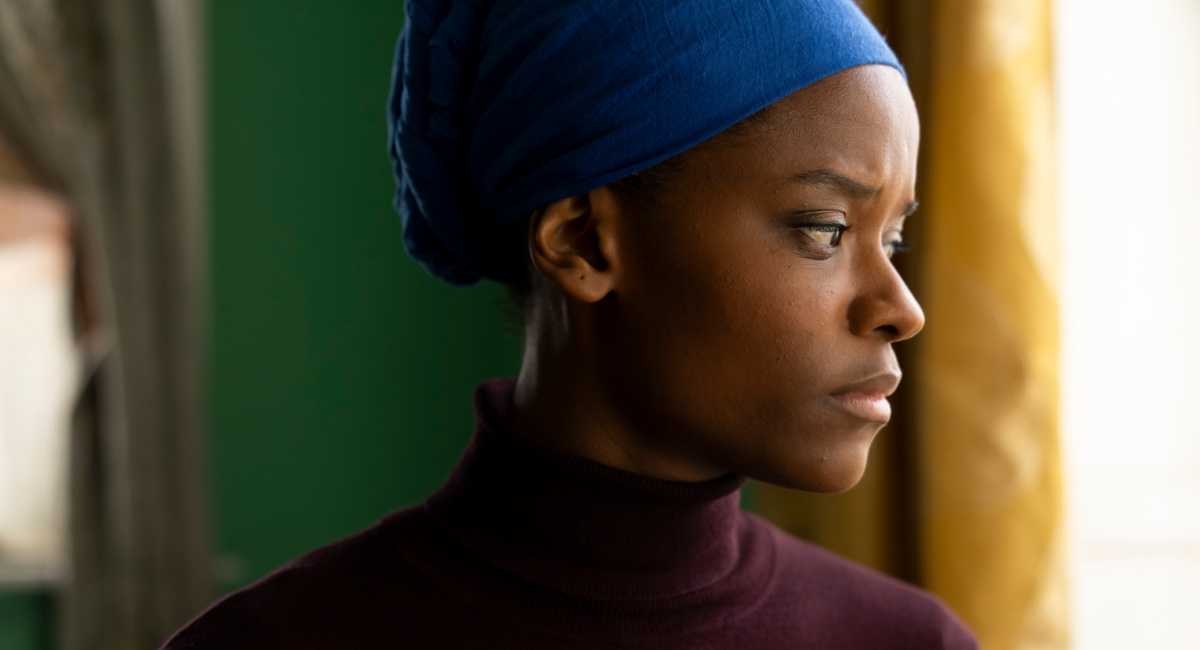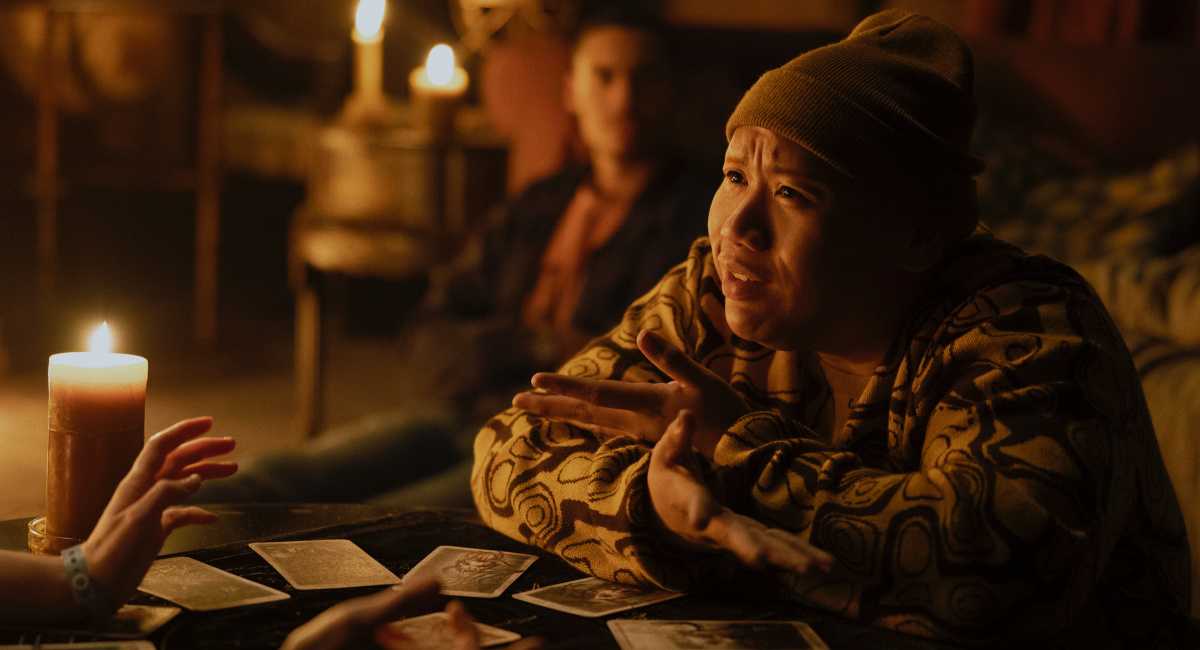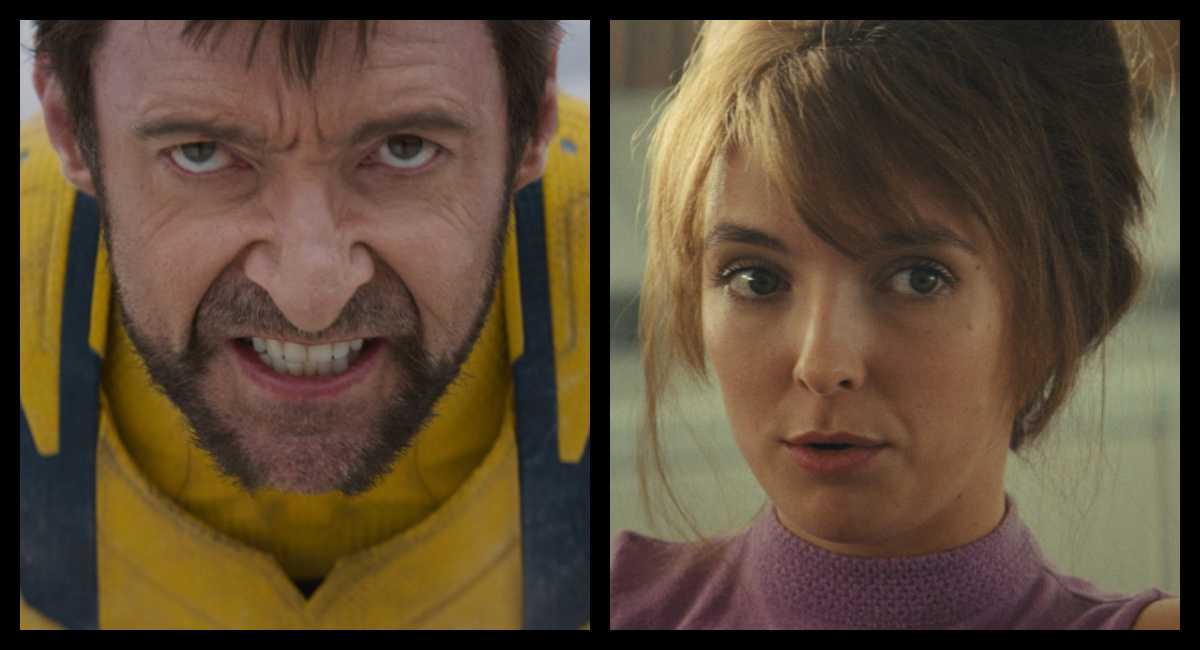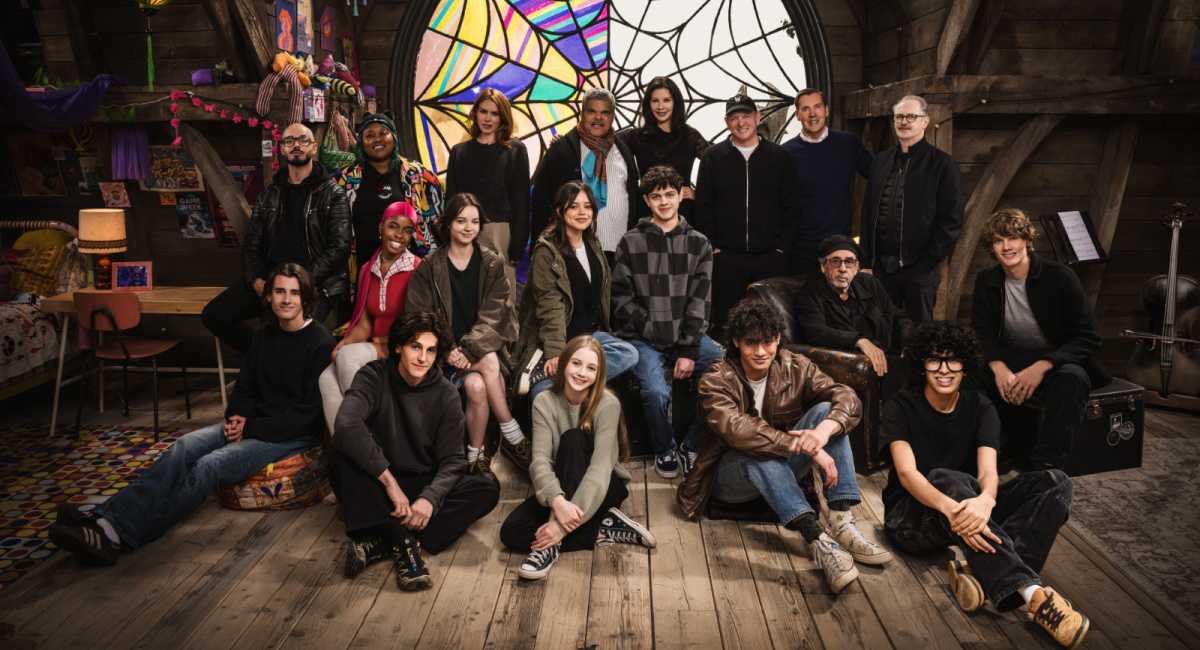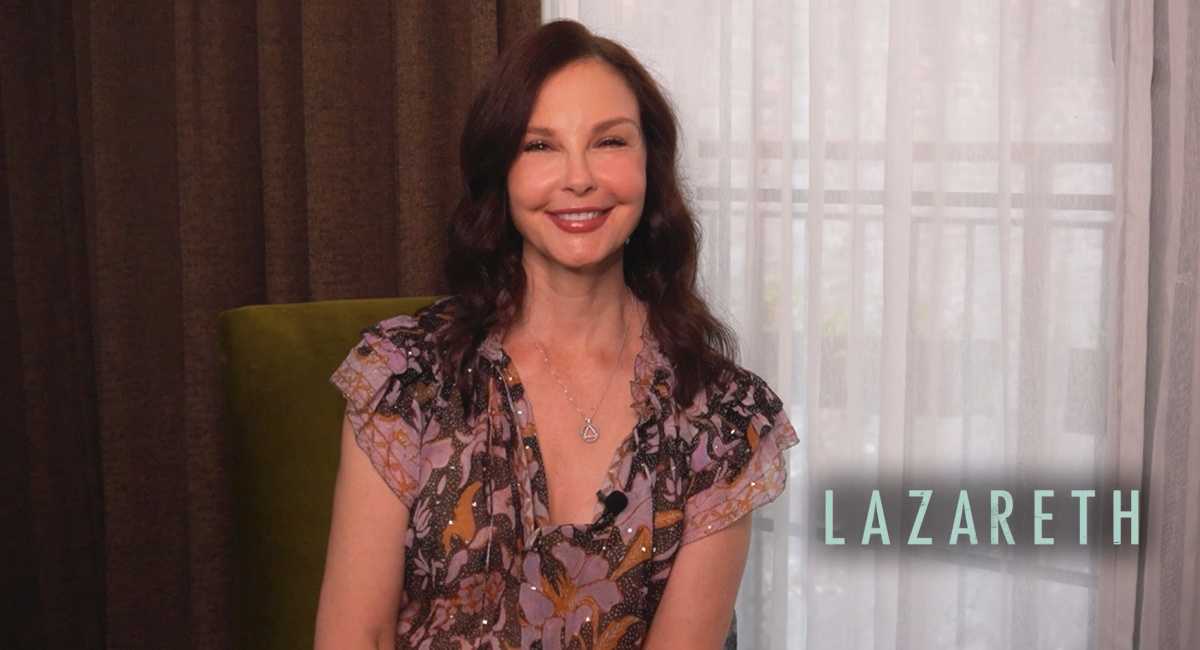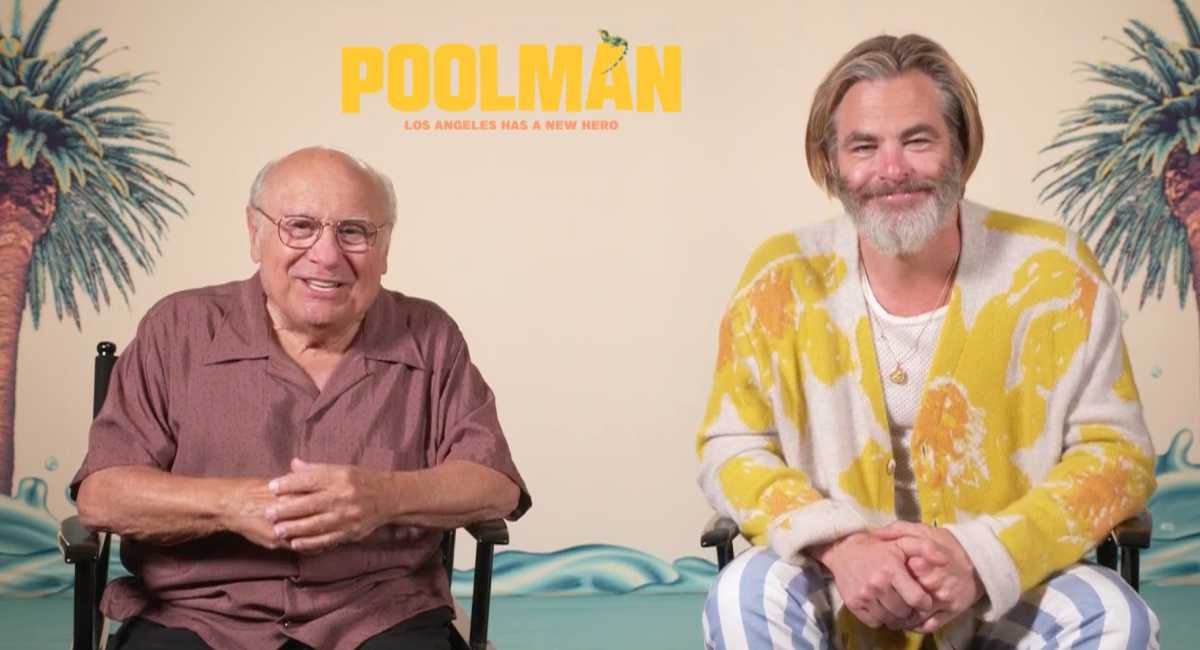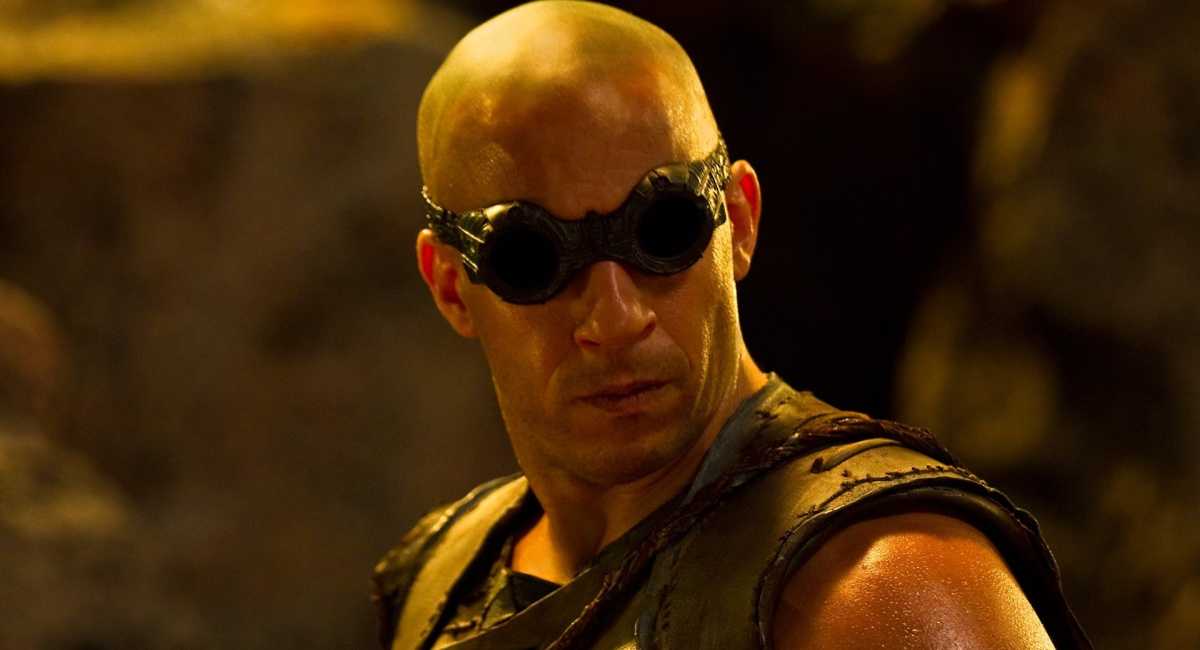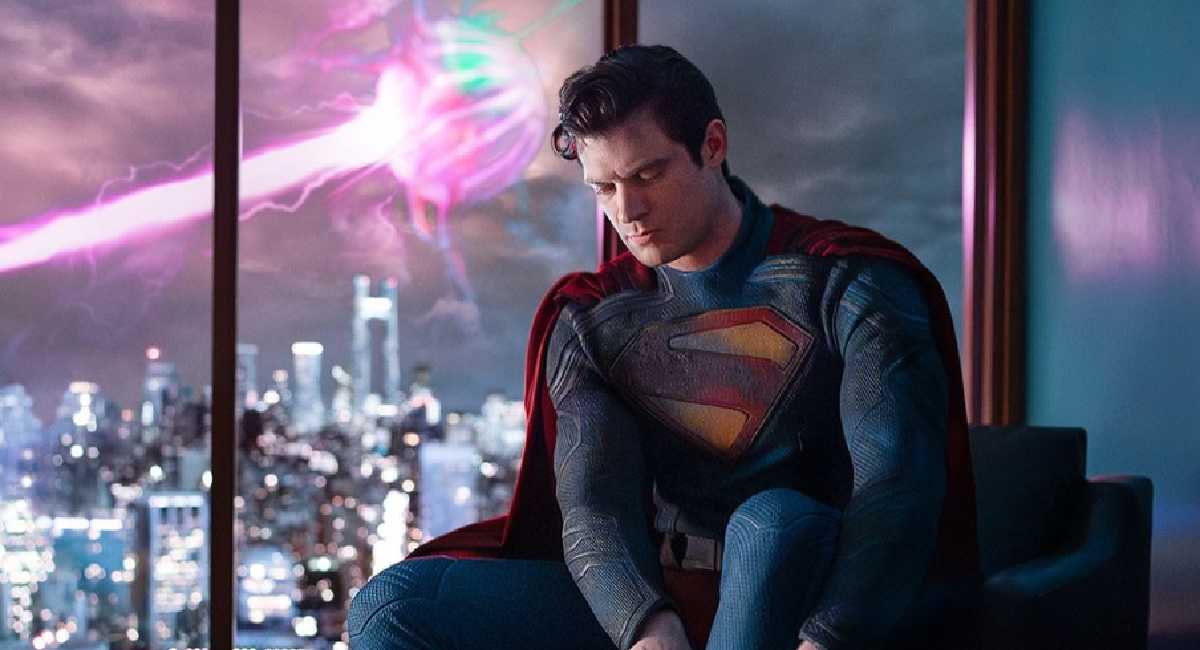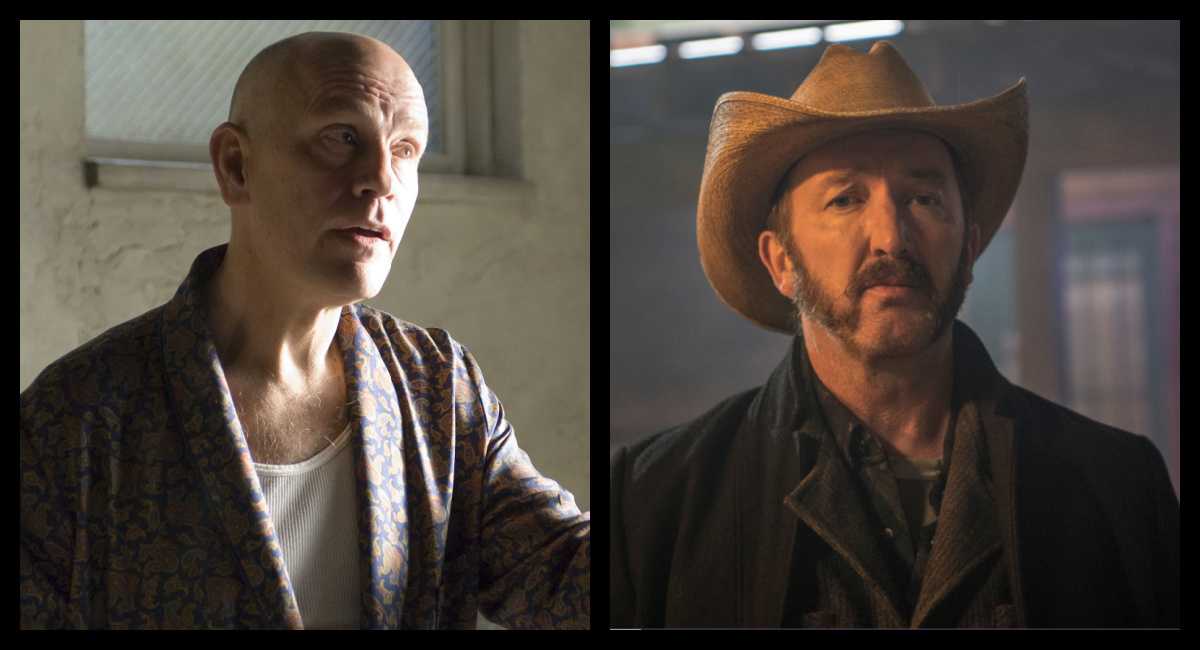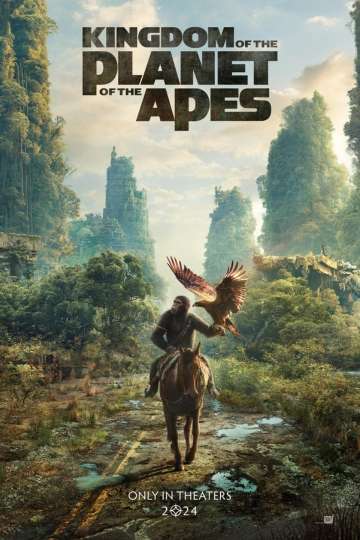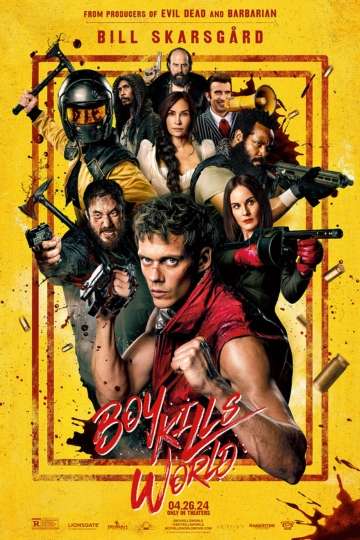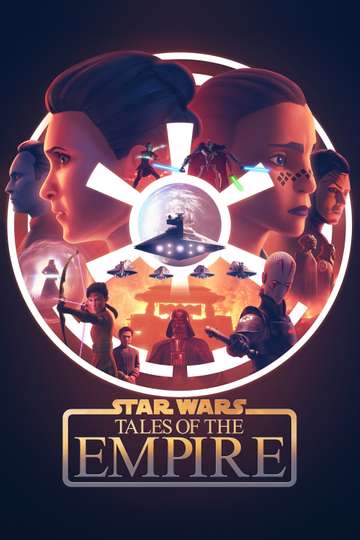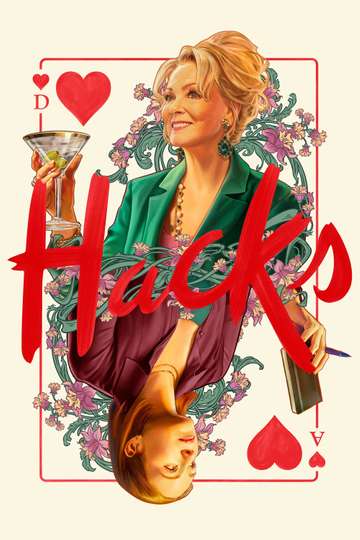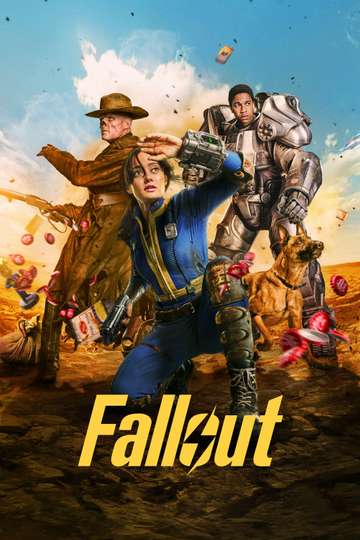Alec Baldwin on Fulfilling His Dream of Working with Emilio Estevez in ‘The Public’
Alec Baldwin is one of those actors so legendary and iconic, everything he does seems like an event, even if it’s a small character drama like “The Public.” Written, directed and produced by Emilio Estevez, it’s the kind of movie they don’t seem to make anymore, full of wonderful, graceful character beats and genuine surprises, telling the story of a group of homeless people who decide to “occupy” a public library. (The cast also includes Taylor Schilling, Michael K. Williams, Christian Slater and Jena Malone.) In other words, it’s worth seeking out, even if you have to look extra hard for it.
So you can imagine how thrilled we were to chat with Baldwin, about how he became involved in the project, how he goes about choosing his roles, and whether or not he misses the allure of big budget franchise filmmaking. He was wonderful, open and honest, just like “The Public” itself.
Moviefone: How did you initially become involved with this project?
Alec Baldwin: I think there's a part of me that I've always been keen on the idea of working with Emilio. He’s on that short list of people who are making films that are smart and have strong subject matter and so forth. A lot of the people who were there today, the cast, are people who are making a living of it, doing jobs that are entertainment and they might have a lot of smart content. But at the same time they don't necessarily get to make a movie like this. When someone like Emilio calls you, if you feel that you can bring something to the role and you're available, in all likelihood you go. It’s not about getting paid. It's not about money, maybe it's about schedule. But I've always been very keen on the idea of working with Emilio.
You’ve worked with several directors who are also actors and is that appealing to you as an actor?
I think that actors historically have made very, very good directors. Whether it's Warren Beatty or Redford or Clint Eastwood of people like that from a previous generation. And I think that actors often make excellent directors. But it doesn't really matter. Woody Allen as a good example because it doesn't really matter how good a director they are with actors if the script isn't good. Some of those people have either written or have supervised some wonderful material. With Emilio, that’s key, the writing is key. He’s such a great writer. He's a, very good director, he's a wonderful actor. But what he really is, is a great writer. To balance this story and make it funny when you need to be funny and they can visually arresting. He knows pop things visually. And then to balance the supporting roles, to take these roles and make them interesting enough to attract a cast like this I think is a really great ability that he has.
This story has a social dimension to it, in terms of its themes and subject matter. Um, is that something that you are looking for when choosing projects?
If it works as well as this does and it involve the people like this, then yes. I mean, I have people come to me periodically to either appear in a film or TV project or to produce documentary programming where it's very straightforward and very earnest. One of the most complicated things in this business is to deal with people who are very, very passionate about their project. And you understand that passion. You say to yourself, I know what that's like. I know this guy sitting there saying, ‘I think we need to have a new generation of dog collars.’ And they come to you with some out of left field idea that they're burning about. You sit there and go, “Well I don't know how much I can really help you with your documentary about dog collars, but I support you nonetheless.”
You've seen that people come to you with great ideas and completely nutty ideas and yet they are passionate about that idea. And I, I always say, “God, I hope you get to make your film. I'll be getting made an inch. I don't know if I can help you.” The difficult thing is what Emilio pulled off because the final straw is a producer. He's a writer, he's a director, he's an actor, he's a producer that raise the money that got this made, that made deals and enticed people to come and shoot this film and got this will be sold and is getting it distributed. That's such a Herculean task in the modern world with so much product out there, there's so many people competing for the public's attention.
And I want to do movies I think work and if, if they’re supposed to be funny, I want them to be funny and if they’re supposed to be dramatic and weird and interesting than I want that to be taken care of. And if I want to do something that's really a social drama, I think you couldn't possibly do it with somebody better than Emilio.
Well I was going to ask, you know, you said that you know that entertainment is obviously very important, but how important is it to you to keep doing movies of this scale?
Well, I think that the movies that I do now really it's all about schedule because I have so many little children. I got remarried and my wife and I have four kids, five and under, you know. And even when I say that out loud, I gasp myself, that we have so many kids. But they are really what calls the tune. So the things I've done like this Delorean project I have coming out that's going to be a Tribeca I did Ed Norton's movie. I worked with Edward on “Motherless Brooklyn.” He had got to adapt this book that everybody was a wild about. Whenever I get a chance to work with the best people, that's when you get excited. You know, you’ll say, “Well, who’s in the movie?” And they'll say, “DeNiro!” And you go, “Oh my God,” and they're going, “No, it’s Larry DeNiro.” But when you get to work with the best people, that's when you really, you sense you have an opportunity to, you know, you really might be onto something.
Well, I'm, I'm curious to see your relationship with these kinds of franchise movies. Earlier in your career you were a Jack Ryan, which I'm assuming you thought were going to do sort of more of those. And now you're in “Mission: Impossible.”
But I’m dead!
There are reports you could come back!
[laughs] That’s funny. Again, I’ve made movies where the budget of the film was $1 million. And then you make a movie like “Mission: Impossible,” where $1 million is the budget for Diet Coke alone. And I mean, it's like you make movies, it's just so insane the amount of money, but that amount of money is required because filmmaking can be as much as you plan, because things can happen that are unexpected. And that goes beyond Cruise breaking his leg in the middle of the shooting schedule. They test things and they test things and they do things in terms of its cinematic effect and not everything works. These highly complicated films like “Mission,” they just have so many people on the set and when you're there shooting. It's Hollywood big budget studio film making like pretty much no one's doing anymore unless it's these franchises that have these huge audiences in this huge reach.
I love doing films like that. I love Chris. I love Tom. There's no one else I'd rather shoot with regardless of the content. They're really great people to work for. The sad thing for me is there's people I've wanted to work with that I might not get to work with. There might not be enough time in my life to work with. And a lot of the people I want to work with again. I see people all the time. I was talking to Michael K. Williams here and I was saying how much I loved ”The Night Of.” And I mean, I'm the first person when I see a show like that I like, I'm like, “You call them the phone. You tell them if they're going to do ‘Night Of’ part 2, please call me, I'll play a cop. Man, I don't care.” You know?
Are there any of these characters that you would want to revisit? At one point Jack Ryan was president.
That is highly unlikely. Everything happens for a reason. I sometimes think of my career had gone in a direction where I had this bulletproof career where you literally live in the penthouse, like Hanks and Cruise and all these people who have these golden opportunities in their careers and they make wonderful films. I often think to myself, if I had that kind of career, what would my life be like? And I did not have that kind of career. I had a window where things were pretty good. And then like everybody else, you fall from the movie tree and they make you into the apple sauce of the TV business. You know what I mean? But I wound up doing “30 Rock,” which was one of the greatest experiences I've ever had. These people taught me what's funny was. I never thought of myself as being that funny. I learned from Tina and Robert and on and on, even into my personal life and if I, if I hadn't met my wife and had my kids, who cares how rich and famous you are if you're miserable. And my life is exactly … I wouldn't change a thing. I really wouldn't change a thing because I'm happier now than I've ever been in my life.
“The Public” opens in theaters tomorrow!
